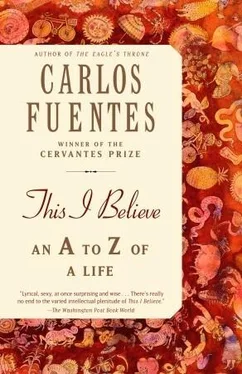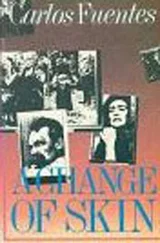Received ideas and the inertia of practice are what Pascal rejects, and for this reason — and many others — he exalts the figure of Christ as active, contentious, demanding with his time, the model that we have already found without knowing it, but that we must pursue so that we may always be conscious of what each of us can be, can exhaust, or can renounce.
“I believe because it is absurd,” was Tertullian’s most sublime reflection on faith, which can be explained not by reason, but by that “heart” which has reasons that reason does not know. Wittgenstein, a Jew who found himself irresistibly drawn to Catholicism, admits that the religious thinker is a “tightrope walker.” And so is he. On the one hand, he tells us that faith is absurd, that Christianity is characterized not by faith but by practice — that is, by living as Jesus did. Yet on the other, he declares that faith is faith in terms of what the heart and soul need, not what “my speculative intelligence” requires. As such, “my soul with its passions. . is what needs saving, not my abstract thought.” From this point the faith-practice contradiction in Wittgenstein’s thought becomes less clear, less apparent, whenever his “soul” and his “passions” subject faith to the practical challenge to live as Jesus did. “Only Christian practice, a life like the life that died on the cross, is Christian. . and even today it is possible.” And then he adds that “for certain men, it is even necessary: genuine, primitive Christianity is possible at every moment.” Christianity appears to Wittgenstein, in the end, as faith that is action — not just “belief” but action. Christianity cannot reduce itself to simply sustaining that one or another thing is true. Christianity is practice, not dogma.
The vast intelligence of Ludwig Wittgenstein leads him to believe that there is no reason why religious faith cannot be part of the cultural heritage “that allows me to distinguish between true and false.” Only a man of this kind of philosophical and moral integrity could say, as he lay dying, “God said to me, I judge you for what has come from your mouth. Your own actions have made you tremble with disgust when you have seen others repeat them.” Because “my soul and its passions, not my abstract intelligence, are what need saving.”
I don’t know if there is any philosophical assertion more valiant or more definitive than this.
I believe in women. With sex. With names. With biographies. With experience. With destiny. The German Jewish philosopher Edith Stein (1891–1942), a disciple of Edmund Husserl, entered the Carmelite order in 1933 to become Sister Benedicta of the Cross, yet she never renounced her Jewish roots. She declared that anti-Semitism was tantamount to “Christicide” and in 1933, when Pope Pius XI declared that “the Church prays for the Jewish people, bearers of the Revelation until the arrival of Christ,” she felt emboldened to ask his successor, Pius XII (Eugenio Pacelli), for an encyclical to protect the Jews. “Spiritually, we are all Jews,” the Jewish nun said to the pro-German pontifice. She received no response. Pius XII would not protect the Jews, and Edith Stein would be wrested from the Church and the protection it offered. Despite the fact that she was a nun, she was deported to the first concentration camp, Dachau. Who can ignore these facts when speaking of the destiny of women in history, our history? Edith Stein died in Auschwitz in 1942. Some time before, in her book Science of the Cross, she had said: “Reason divides us. Faith unites us.” I had heard of Edith Stein and began to read her work at a very young age, at nineteen, thanks to the ill-fated Mexican philosopher Jorge Portilla, a devotee of this woman, thinker, and martyr. The word martyr, etymologically speaking, means witness.
Anna Akhmatova (1889–1966) was, with the possible exception of Osip Mandelstam, the greatest Russian poet of the twentieth century. Men loved her, but they did not understand her. They all admitted it, too: Anna was prouder and smarter than they were. Beneath her fragile appearance lay an iron will. Fragility and will gave wings to her marvelous poetry, which can perhaps be epitomized by a poem that fuses, in one earthly and eternal moment of recognition, writer and reader: “Our time on earth is fleeting, / The appointed round constricting, / But he— the poet’s unknown friend— / Is devoted and everlasting.” This tremendous faith in poetry is Anna Akhmatova’s glory as well as her prison. Determined to forge her own path, free from the restrictions of Zhdanov and “socialist realism,” she was vilified and hounded by Stalin. The artful dictator saw in Akhmatova a double force, a dangerous and intolerable one. She was both a woman and a poet, one who might dispute a small parcel of his power. “I take from the left and from the right. . And everything — from the silence of the night,” she writes, warning the tyrant lest he misunderstand that the chorus of poetry is always “on the other shore of hell.” In 1935 her poetry was banned by the regime, and she was labeled a “whore” and a “counterrevolutionary.” Her poems remain in the memories only of those people who read her in time. But war has a way of restoring honor and renown: her voice resonates with the deepest echoes of the Russian literary tradition and the resistance of her people. She has been deified. Too deified. The poems and speeches she wrote in defense of her city, Leningrad, under siege, have brought her renown, ovations, awards. And still, she knows that “like a vampire, an executioner will always find a victim, otherwise he cannot survive.” The executioner waits in the shadows. When the war ended, Stalin wondered if this brilliant, independent woman did not deserve — as soon as possible — to be robbed of the hope that she had won her freedom through her contributions to the victory. He ordered her glory and her freedom to be seized. She lost her apartment and her income as a writer. She lived in squalor, cold and hungry. She scraped by thanks to the charity of her friends. And to remove any lingering doubts as to whether creative freedom does not come at the highest of prices, her son was sent to a concentration camp. Liberated in 1956, son and mother no longer recognized each other. They had nothing to say to each other. The son transferred on to his mother all the rage of his own suffering. “Ask my contemporaries,” says Akhmatova in the great “Poem Without a Hero,” “And we will tell you / How we lived in unconscious fear, / How we raised children for the executioner, / For prison and for the torture chamber. . ” With good reason she says, “I don’t often visit memory / and it always surprises me.” It is far wiser for her to listen closely to the growth of the ivy and convince herself that “someone small has decided to live.” When Akhmatova died, the line of mourners outside the Writers’ House in Moscow stretched several blocks long. This is her testament: “I am sure that even now we do not entirely know the magic chorus of poets that we possess, that the Russian language is young and flexible, that we only just recently began writing verse: that we love it and believe in it. . ” They say she always walked with a firm, serene stride. They say that she never let herself be defeated by the attempts to humiliate her.
The German-Jewish philosopher Simone Weil (1909–1943) was a disciple of Alain and his mandate to rethink everything based on the reading, each year, of one philosopher and one poet, such as Plato and Homer. Alain claimed to be neither Communist nor socialist. “I belong to the eternal Left, the Left that never exercises power, which by nature tends toward abuse.”
Not only did Simone Weil rethink everything, she decided to turn her thoughts into action, put them to the test on the street, at the factory, on the battlefield. As a student, she was known as the “Red Virgin” and she manifested her leftist tendencies by going to work in a factory, fighting fascism in Spain, and, later on, rejecting the “patriotism of the Church” and the French Catholic voices that claimed: “Better Hitler than the Popular Front.” But Simone Weil also rejected Soviet Communism once she learned of the Stalinist purges. And she made her convictions known: “Very soon, the true revolutionaries will come to be recognized because they will be the only people who will not speak of revolution. Nothing, in this age, deserves such a name.” And the more firmly she planted herself in the fields of labor and politics, the more attracted she felt to God, in terms of both gravity and grace. Nevertheless, she will always be a Christian outside the Church, which she believes to be a dogmatic, bureaucratic structure. She wants to be with God, to act freely. And she will be with God because she is convinced that “God did not create anything but love itself, and the means to love.” God is real, Simone Weil tells us, because my love is not imaginary. And for this reason she feels she is the master of her own free will. Her acceptance or rejection of God depends on her freedom. On April 15, 1943, Simone Weil died of starvation in an English hospital. She was prohibited from joining the French resistance, and so she refused to consume more than the daily ration of a prisoner in a concentration camp, despite the fact that tuberculosis was eating her alive. All my life I have believed in Simone Weil, ever since I read her marvelous essay “The Iliad, Poem of Might,” and memorized the lessons that she draws from Homer: “the fact that nothing is sheltered from fate. . never admire might, or hate the enemy or despise sufferers.”
Читать дальше












